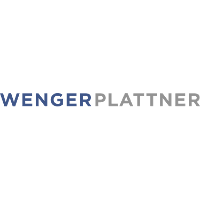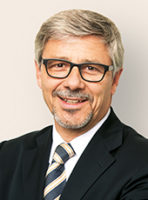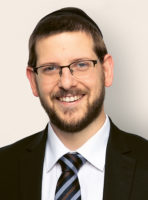Cannabinoid Drugs, Medicinal Cannabis and Opioid Drugs
Wenger Plattner / Switzerland
Key legal info on cannabinoids in Swiss Pharma. Prepared in association with Wenger Plattner, a leading law firm in Switzerland, this is an extract from The Pharma Legal Handbook: Switzerland, available to purchase here for GBP 99.
Cannabinoid Drugs
1. Are Cannabinoid Drugs authorized in your country?
In principle, the cultivation, introduction, production and placing on the market of narcotics containing an effective concentration of Cannabinoid Drugs are not permitted (art. 8 para. 1 lit. d of the Narcotics Act (NarcA) (Bundesgesetz über die Betäubungsmittel und die psychotropen Stoffe vom 3. Oktober 1951 [Betäubungsmittelgesetz; BetmG; SR 821.121]). However, the Federal Office of Public Health (FOPH) may, upon request, grant exemption permits for the cultivation, importation, production, and marketing of Cannabinoid Drugs if it is for restricted medical use, for scientific research or for drug development and not prohibited by an international agreement (art. 8 para. 5 NarcA).
The mentioned prohibition mainly concerns products with the active substance THC, which have a total THC content of at least 1.0 %. If a product contains a THC content of less than 1.0 %, it no longer falls under the Narcotics Act, but under the Federal Act on Medicinal Products and Medical Devices (Therapeutic Products Act) (TPA) (Bundesgesetz über Arzneimittel und Medizinprodukte vom 15. Dezember 2000 [Heilmittelgesetz, HMG; SR 812.21]).
2. What are the regulatory authorities with jurisdiction over Cannabinoid Drugs?
The regulatory authorities over Cannabinoid Drugs are the FOPH as well as the Swiss Agency for Therapeutic Products (Swissmedic). The FOPH plays a key role especially in the legislative procedures in all sectors of the public health law. The competence of the FOPH lies primarily in the approval of applications for exemption and the enforcement of the NarcA. Swissmedic is the competent authority for authorizations and licenses in the field of Cannabinoid Drugs (e.g. licences for importing, exporting and distributing). Swissmedic is therefore responsible for regulating the approval of Cannabinoid Drugs and CBD-containing products that are to be marketed as medicinal products in Switzerland under the TPA. The regulatory competence over the narcotics directory ordinance lies in the responsibility of the FDHA. The latter supplements the lists at the request of Swissmedic, which submits a request if a supplement to the lists appears appropriate due to international developments or new hazards.
3. Is there a specific regulatory framework for the authorization, pricing, and reimbursement of Cannabinoid Drugs?
1. The regulatory framework for the authorization of Cannabinoid Drugs
The legal framework for the authorization of Cannabinoid Drugs is regulated by the NarcA, because Cannabinoid Drugs are prohibited narcotics in the meaning of the NarcA (art. 8 para. 1 lit. d NarcA). The NarcA regulates the availability of Cannabinoid Drugs for medical and scientific purposes in particular. The NarcA is supplemented by the Narcotics Control Ordinance (Betäubungsmittelkontrollverordnung vom 25 May 2011 [BetmKV; SR 812.121.1]) and the Narcotics Directory Ordinance of the FDHA (Verordnung des EDI über die Verzeichnisse der Betäubungsmittel, psychotropen Stoffe, Vorläuferstoffe und Hilfschemikalien vom 30 May 2011 2011 [BetmVV-EDI; SR 812.121.11]). The former regulates the licensing and control of Cannabinoid Drugs as well as the import, export and transit of Cannabinoid Drugs. The latter mainly contains lists of the various narcotics, including Cannabinoid Drugs and categorizes them. Cannabinoid Drugs used as therapeutic substances are not subject to the provisions of the NarcA, but are subject to those of the TPA, insofar as the TPA contains no rule or a less stringer rule (art. 1b NarcA).
2. The regulatory framework for the pricing and reimbursement of Cannabinoid Drugs
Treatment with cannabis medicines is currently not covered by the compulsory health insurance (OKP) (this also applies to the approved Sativex®; cf. question 4). The reason for this is in particular due to the unclear scientific evidence regarding the efficacy and cost-effectiveness of cannabis medicines. Reimbursement of cannabis medicines by the health insurance is made exceptionally in individual cases after consultation with the medical officer. The proposed amendment to the law (cf. question 10) does not provide for adjusting the current requirements for reimbursement via the OKP.
4. Which are the cannabinoid drugs that have received market approval to date?
Currently, Sativex® is the only cannabis medicine approved for use in Switzerland. It can be prescribed by doctors without an exceptional authorization from the FOPH, but only in the case of spasticity in multiple sclerosis.
5. Who can prescribe Cannabinoid Drugs?
Cannabinoid Drugs can only be prescribed by a doctor licensed to practice in Switzerland on the basis of an exceptional authorization issued by the FOPH. To prescribe authorized Cannabinoid Drugs an exemption permit is not required (see question 4).
6. Is there a list of doctors authorized to prescribe Cannabinoid Drugs?
There is no specific list of authorized doctors, as all licensed doctors in Switzerland can prescribe Cannabinoid Drugs. Doctors authorized to practice are listed in the Medical Professional Register (MedReg), which is a binding list of all medical professionals who are authorized by a cantonal authority to obtain Cannabinoid Drugs. The register can be accessed at the following link: https://www.medregbm.admin.ch/Betrieb/Search (last visited on 31 March 2021).
7. What approvals or notifications are required to prescribe Cannabinoid Drugs?
The use of Cannabinoid Drugs in the sense of art. 8 para. 5 NarcA is only a matter of concrete individual cases in which a limited medical use is justified. For a prescription in these cases, the following requirements must be met:
- incurable chronic disease
- suffering can be alleviated by taking Cannabinoid Drugs that are basically prohibited
- therapy and treatment options are exhausted
- dispensing Cannabinoid Drugs, which are prohibited per se, can avoid inpatient treatment
In addition to the written request, which must be submitted by the treating doctor, a written declaration by the patient is also required, in which he or she agrees to the application (art. 28 para. 2 lit. d of the Narcotics Addiction Ordinance) (Verordnung über Betäubungsmittelsucht und andere suchtbedingte Störungen [Betäubungsmittelsuchtverordnung; BetmSV; SR 812.121.6]). Exemption permits are only issued to doctors authorized to practice in Switzerland for the treatment of patients who are Swiss residents. The control of these specifications is the responsibility of the FOPH (art. 29 of the Narcotics Addiction Ordinance). After approval of the application by the FOPH, the patient can be prescribed the cannabis-containing medicine tailored to his or her personal needs, the so-called extemporaneous preparations.
As already mentioned in question 5 there is currently only one Cannabinoid Drug, who can be prescribed without an exceptional authorization from the FOPH and without fulfilling the just mentioned requirements.
8. Which organizations are authorized to sell/distribute Cannabinoid Drugs available?
Anyone who wants to sell or distribute Cannabinoid Drugs in Switzerland needs an exemption permit from the FOPH if the cannabinoids do not serve as an active ingredient for a medicinal product authorized by Swissmedic. The exemption can be granted if there is no international agreement to the contrary and the Cannabinoid Drugs are used for scientific research, drug development or restricted medical use (art. 8 para. 5 NarcA, art. 28 of the Narcotics Addiction Ordinance and art. 8 of the Narcotics Control Ordinance).
9. Is there a list of retailers/distributors authorized to sell Cannabinoid Drugs?
No, there is no list of authorized retailers or distributors to sell Cannabinoid Drugs.
10. Are there proposals for reform or significant change to the regulation of Cannabinoid Drugs?
As already alluded in question 1, Cannabinoid Drugs are considered a prohibited narcotic and are subject to a comprehensive traffic ban in Switzerland. This means that cannabis may not be cultivated, produced, imported or distributed. Currently, the medical use of Cannabinoid Drugs is therefore only possible to a limited extent and with an exceptional permit from the FOPH.
The demand for Cannabinoid Drugs treatments has surged in recent years, with nearly 3,000 exemptions granted in 2019 alone. The exception permit process is burdensome, delays treatment and no longer fits the exceptional nature. Therefore, the Federal Council proposes to revise the NarcA. The aim of the revision of the law is to better exploit the potential of cannabis as a medicine and to simplify access to Cannabinoid Drugs for those affected.
To achieve this goal, the ban on the circulation of Cannabinoid Drugs for medicinal purposes is to be lifted, which means that treatment with medicinal cannabis products will no longer require an exceptional authorization from the FOPH. In the future, only the treating doctor will decide on the treatment with medicinal cannabis products. Furthermore, the cultivation, processing, production and trade of medicinal cannabis will be subject to Swissmedic’s authorization control system, as it is the case with other narcotics used for medical purposes. And lastly, the commercial export of cannabis for medical purposes is to be newly permitted to create economic perspectives for domestic cultivators of cannabis. There will be no change in the reimbursement of cannabis medicines, which is why treatment will only be reimbursed by the mandatory health insurance in exceptional cases. However, the FOPH is examining whether there is also a need for action about the question of reimbursement.
11. When are they likely to come into force?
The Federal Council referred the dispatch on the amendment of the law to parliament on 24 June 2020. Whether, how and when the changes will come into force is not clear at this time.
Medicinal Cannabis
12. Is Medicinal Cannabis authorized in the country?
In principle, the cultivation, introduction, production and placing on the market of narcotics containing an effective concentration of Cannabinoid Drugs are not permitted (art. 8 para. 1 lit. d NarcA). However, the FOPH may, upon request, grant exemption permits for the cultivation, importation, production and marketing of Medicinal Cannabis if it is for restricted medical use, for scientific research or for drug development and not prohibited by an international agreement (art. 8 para. 5 NarcA).
The mentioned prohibition mainly concerns products with the active substance THC, which have a total THC content of at least 1.0%. If a product contains a THC content of less than 1.0 %, it no longer falls under the NarcA, but under the TPA and is classified as a CBD-containing product. CBD-containing products with a medicinal purpose are considered medicinal products according to Art. 4 lit. a TPA and according to Art. 9 para. 1 TPA, may not be placed on the market without authorization by Swissmedic.
13. What are the regulatory authorities with jurisdiction over Medicinal Cannabis?
The regulatory authorities over Medicinal Cannabis are the FOPH as well as Swissmedic. The competence of the FOPH lies primarily in the approval of applications for exemption and the enforcement of the NarcA. Swissmedic, for its part, is responsible for regulating the approval of Medicinal Cannabis with less than 1 % of THC content and CBD-containing products that are to be marketed as medicinal products in Switzerland.
14. What is the regulatory framework for the authorization, pricing, and reimbursement of Medicinal Cannabis?
1. The regulatory framework for the authorization of Medicinal Cannabis
The legal framework for the authorization of Cannabinoid Drugs with more than 1 % THC content is regulated by the NarcA, because Cannabinoid Drugs are prohibited narcotics in the meaning of the NarcA (art. 8 para. 1 lit. d NarcA). The NarcA regulates the availability of Cannabinoid Drugs for medical and scientific purposes in particular. The NarcA is supplemented by the Narcotics Control Ordinance and the Narcotics Directory Ordinance of the FDHA. The former regulates the licensing and control of Cannabinoid Drugs as well as the import, export and transit of Cannabinoid Drugs. The latter mainly contains the lists of the various narcotics, including Cannabinoid Drugs, and categorizes them. Cannabinoid Drugs used as therapeutic substances are not subject to the provisions of the NarcA, but are subject to those of the TPA, insofar as the TPA contains no rule or a less stringer rule (art. 1b NarcA). The regulatory framework for CBD-containing products with a medical purpose is the TPA.
2. The regulatory framework for the pricing and reimbursement of Medicinal Cannabis
Treatment with cannabis medicines is currently not covered by compulsory health insurance (OKP) (this also applies to the approved Sativex®; cf. question 4). The reason for this is in particular the unclear scientific evidence regarding the efficacy and cost-effectiveness of cannabis medicines. Reimbursement of cannabis medicines by the health insurance is made exceptionally in individual cases after consultation with the medical officer. The proposed amendment to the law (cf. question 13) does not provide for adjusting the current requirements for reimbursement via the OKP.
15. How is the production and import of Medicinal Cannabis regulated and by which agencies/authorities?
For the production and placing on the market of Medicinal Cannabis, an exceptional authorization from the FOPH is required (art. 8 para. 5 NarcA), provided that these substances do not serve as an active ingredient for a medicinal product authorized by Swissmedic (art. 8 para. 7 NarcA). By “producing” are all operations meant from extraction, production, preparation, treatment or processing, purification, conversion, to packaging, storage, and delivery of the final product, as well as quality controls and release (art. 2 lit. c of the Narcotics Control Ordinance).
In addition, the import of medicinal cannabis requires an exceptional authorization from the FOPH in any case (art. 8 para. 5 NarcA). Based on a corresponding exceptional authorization, Swissmedic can issue the additionally required import and export authorization for the Medicinal Cannabis.
16. What approval or notifications are necessary to produce or import Medicinal Cannabis?
Individuals or companies wishing to import Medicinal cannabis into Swit-zerland must submit an application to Swissmedic for an import permit (art. 24 para. 1 of the Narcotics Control Ordinance). Swissmedic grants this authorization provided that an exemption permit has been issued by the FOPH in accordance with art. 8 para. 5 NarcA. The authorization is issued for a single import. If an import of medicinal cannabis takes place, the holder of the import licence must notify Swissmedic in writing about the receipt of the medicinal cannabis within a maximum period of ten working days (art. 30 para. 1 oft the Control of Narcotic Drugs Ordinance).
A permit is furthermore required to produce Medicinal Cannabis. A cultivation permit is granted to anyone who holds an operating license or acts on behalf of a holder of an operating license by Swissmedic (art. 14 para. 1 of the Narcotics Control Ordinance). The producer of Medicinal Cannabis must then provide proof of a system to protect the medicinal cannabis from theft (art. 14 para. 2 of the Narcotics Control Ordinance). The application for a cultivation permit must contain information on the person of the applicant, the type of activity and the location of cultivation and storage. Furthermore, a current excerpt from the commercial register, an excerpt from the criminal register and professional diplomas must be submitted with the application (art. 15 of the Narcotics Control Ordinance). It must be noted that the transfer of the produced Medicinal Cannabis is only allowed for authorized persons, such as persons or companies with an exemption permit from the FOPH or medical professionals authorized to handle Medicinal Cannabis (cf. art. 16 of the Narcotics Control Ordinance).
17. What is the regulatory framework for the marketing and distribution of Medicinal Cannabis?
Regarding the marketing of medicinal cannabis, there is no specific regulatory framework in Switzerland, as medicinal cannabis is only distributed by doctors, who do not have to or should not undertake any marketing measures.
The distribution of medicinal cannabis is regulated by the laws and ordinances listed in question 14.
18. How can patients obtain Medicinal Cannabis?
If it is a cannabis medicine, patients can obtain this from a doctor directly or from a pharmacy via a prescription. Patients who are entitled to the medical use of a cannabis product that is prohibited in principle on the basis of an exceptional authorization from the FOPH can obtain this directly from the prescribing doctor.
19. Who can prescribe Medicinal Cannabis?
Any doctor through a specific prescription form. However, prescription of cannabis by doctors is only allowed for the situations where conventional treatments with authorized medicinal products are not producing the expected effects or cause relevant adverse effects.
20. Is there a list of doctors authorized to prescribe Medicinal Cannabis?
Only a doctor may prescribe Medicinal Cannabis. Besides, the application for an exemption for the medical use of cannabis can only be submitted by a doctor.
The Medical Professional Register (MedReg) is a binding list of all medical professionals who are authorized by a cantonal authority to obtain narcotics, including the prescription of Medicinal Cannabis. The register can be accessed at the following link: https://www.medregbm.admin.ch/Betrieb/Search (last visited on 31 March 2021).
21. What approvals or notifications are required to prescribe Medicinal Cannabis?
The use of Medicinal Cannabis in the sense of Art. 8 para. 5 NarcA is only a matter of concrete individual cases in which a limited medical use is justified. For a prescription in these cases, the following requirements must be met:
- incurable chronic disease
- suffering can be alleviated by taking Cannabinoid Drugs that are basically prohibited
- therapy and treatment options are exhausted
- dispensing Cannabinoid Drugs, which are prohibited per se, can avoid inpatient treatment
In addition to the written request, which must be submitted by the treating doctor, a written declaration by the patient is as well required, in which he or she agrees to the application (art. 28 para. 2 lit. d of the Narcotics Addiction Ordinance). Exemption permits are only issued to doctors authorized to practice in Switzerland for the treatment of patients who are Swiss residents. The control of these specifications is the responsibility of the FOPH (art. 29 of the Narcotics Addiction Ordinance). After approval of the application by the FOPH, the patient can be prescribed the cannabis-containing medicine tailored to his or her personal needs, the so-called extemporaneous preparations.
22. Where is Medicinal Cannabis available?
Medicinal cannabis can be obtained either through an authorized doctor or through a pharmacy that receives a prescription issued by a doctor. The number of pharmacies in Switzerland that can offer and distribute medicinal cannabis is limited. Currently, only the Bahnhofapotheke in Langnau and the Hänseler AG in Herisau are authorized to sell.
23. Is there a list of retailers authorized to sell Medicinal Cannabis?
No, there is no list of retailers authorized to sell Medicinal Cannabis. This is because the prescription for Medicinal Cannabis or the issuance of a prescription for a cannabis-containing drug in Switzerland can only be made by doctors. The production of medicines containing cannabis is carried out by a pharmacy, but only based on a prescription from a doctor.
24. Are there proposals for reform or significant change to the regulation of Medicinal Cannabis?
As already alluded in question 12, cannabis is considered a prohibited narcotic and is subject to a comprehensive traffic ban in Switzerland. This means that cannabis may not be cultivated, produced, imported or distributed. Currently, the medical use of cannabis is therefore only possible to a limited extent and with an exceptional permit from the FOPH.
The demand for cannabis treatments has surged in recent years, with nearly 3,000 exemptions granted in 2019 alone. The exception permit process is burdensome, delays treatment and no longer fits the exceptional nature. Therefore, the Federal Council proposes to revise the NarcA. The aim of the revision of the law is to better exploit the potential of cannabis as a medicine and to simplify access to cannabis medicines for those affected.
To achieve this goal, the ban on the circulation of cannabis for medicinal purposes is to be lifted, which means that treatment with medicinal cannabis products will no longer require an exceptional authorization from the FOPH. In the future, only the treating doctor will decide on the treatment with medicinal cannabis products. Furthermore, the cultivation, processing, production and trade of medicinal cannabis will be subject to Swissmedic’s authorization control system, as it is the case with other narcotics used for medical purposes. And lastly, the commercial export of cannabis for medical purposes is to be newly permitted to create economic perspectives for domestic cultivators of cannabis. There will be no change in the reimbursement of cannabis medicines, which is why treatment will only be reimbursed by the mandatory health insurance in exceptional cases. However, the FOPH is examining whether there is also a need for action about the question of reimbursement.
The Federal Council referred the dispatch on the amendment of the law to parliament on 24 June 2020. Whether, how and when the changes will come into force is not clear at this time. It should be noted that there will be no change for cannabis for non-medical purposes: It remains prohibited.
Opioid Drugs
25. Are Opioid Drugs authorized in your country?
Yes, Opioid Drugs are authorized in Switzerland.
26. What are the regulatory authorities with jurisdiction over Opioid Drugs?
The regulatory authorities over Opioid Drugs are the FOPH as well as Swissmedic. The competence of the FOPH lies primarily in the enforcement of the NarcA. Swissmedic, for its part, is responsible for regulating the approval of Opioid Drugs and Opioid-containing products that are to be marketed as medicinal products in Switzerland under the TPA. The regulatory competence over the Narcotics Directory Ordinance is the responsibility of the FDHA. The latter supplements the lists at the request of Swissmedic, which submits a request if a supplement to the lists appears appropriate due to international developments or new hazards.
27. Is there a specific regulatory framework for the authorization, pricing, and reimbursement of Opioid Drugs?
1. The regulatory framework for the authorization of Opioid Drugs
The legal framework for the authorization of Opioid Drugs is regulated by the TPA, insofar as they are used as therapeutic products (art. 2 para. 1 lit. b TPA). If they are not used as therapeutic products, the regulatory framework is the NarcA since Opioid Drugs can be narcotics (cf. art. 2 lit. a NarcA). In addition, there are numerous ordinances governing the details (e.g. the Ordinance on Medicinal Products and the Ordinance on Licensing the Medicinal Products Sector).
2. The regulatory framework for the pricing and reimbursement of Opiod Drugs
The pricing and reimbursement are governed by the general principles. The following remarks therefore correspond to those already made in chapter 01 under question 12. A medicinal product can only be reimbursed by the health insurance if it is listed by the FOPH on the so-called “specialty list” (Spezialitätenliste) (art. 52 para. 1 lit. b HIA). First, an application for a medicinal product to be listed on the specialty list has to be filed with the FOPH. In order to be listed, the Swissmedic approved medicinal product must satisfy the criteria of effectiveness, functionality and economic efficiency (art. 65 para. 1 and 3 of the Ordinance on Health Insurance [hereinafter: OHI] [Verordnung über die Krankenversicherung vom 27. Juni 1995, KVV; SR 832.102]). In order to assess the effectiveness criterion, the same documents are used as those submitted to Swissmedic for marketing authorization. However, the FOPH may require further documentation (art. 32 Ordinance on the Benefits of the Mandatory Health Insurance [hereinafter: OBHI] [Verordnung des EDI vom 29. September 1995 über Leistungen in der obligatorischen Krankenpflegeversicherung; Krankenpflege-Leistungsverordnung, KLV; SR 832.112.31]). With regard to the functionality of a medicinal product, the FOPH analyses its impact, composition and possible side effects (art. 33 OBHI). The economic efficiency of a medicinal product is evaluated by using a combination of different concepts:
First, the FOPH compares the price of the medicinal product with the average price of the same medicinal product in the reference countries Germany, Denmark, Great Britain, the Netherlands, France, Austria, Belgium, Finland and Sweden (Auslandspreisvergleich) (cf. https://www.bag.admin.ch/bag/de/home/versicherungen/krankenversicherung/krankenversicherung-leistungen-tarife/Arzneimittel/Mitteilungen-zur-Spezialitaetenliste.html, last visited on 31 March 2021). Second, the FOPH compares the price of the medicinal product with the price of other medicinal products in Switzerland used to treat the same disease (therapeutischer Quervergleich). Both results will be evaluated equally (art. 65b OHI; art. 34a et seqq. OBHI). The FOPH has a large discretion in the composition of the reference drugs. The calculation process is illustrated by the following example: the average price in the reference countries is 100 Swiss francs; the average price for other medicinal products in Switzerland used to treat the same disease is 150 Swiss francs; as a result, the price for the new medicinal product is set at 125 Swiss francs ([100+150] / 2).
However, the price determined by these criteria is not yet definitive. The FOPH takes into account costs for research and development (unless the original product is a successor product that does not bring any therapeutic progress). In case of significant therapeutic progress, a so-called innovation supplement (Innovationszuschlag) is granted for a maximum of 15 years (art. 65b para. 6 and 7 OHI).
28. Which are the Opioid drugs that have received market approval to date?
The Narcotics Directory Ordinance lists all controlled substances in Annexes 1 to 8. The controlled substances are divided into different dispensing categories. Based on these lists, Swissmedic maintains a list of authorized narcotic medicinal products for human use, which also includes Opioid Drugs. The list is updated on an ongoing basis but is not exhaustive or binding. Only the lists in the Narcotics Ordinance are binding for the assessment of approved Opioid Drugs.
The list can be accessed under section 4.1 on the Swissmedic website using the following link: https://www.swissmedic.ch/swissmedic/de/home/services/listen_neu.html#944532819 (last visited 31 March 2021)
29. Who can prescribe Opioid Drugs?
Opiod Drugs may only be prescribed by doctors, who have a professional license. When prescribing, dispensing and using medicinal products, the recognized rules of medical and pharmaceutical science must be observed by the doctor (art. 26 para. 1 TPA).
30. Is there a list of doctors authorized to prescribe Opioid Drugs?
The Medical Professional Register (MedReg) is a binding list of all medical professionals who are authorized by a cantonal authority to obtain Opioid Drugs. The register can be accessed at the following link: https://www.medregbm.admin.ch/Betrieb/Search (last visited on 31 March 2021).
31. What approvals or notifications are required to prescribe Opioid Drugs?
First of all, the prescribing doctor needs to be registered in the MedReg, to provide proof of the license to practice the profession. When prescribing and dispensing Opioid Drugs, the accepted rules of medical and pharmaceutical science must be followed by the doctor and a drug may only be prescribed if the health condition of the user is known (art. 26 TPA). Further, the prescription of Opioid Drugs must always be made with a prescription issued by a doctor, which he examined him- or herself (art. 46 of the Narcotics Control Ordinance).
The prescription, dispensing and administration of narcotics for substitution treatment requires a permit from the competent canton and for heroin-assisted treatment an additional permit from the federal government (art. 3a NarcA, section 2 and 3 of the Narcotics Addiction Ordinance).
32. Which organizations are authorized to sell/distribute Opioid Drugs available?
Organizations that manufacture or broker Opioid Drugs in Switzerland (manufacturing, wholesale, import and export) require an operating license (art. 4 para. 1 NarcA, art. 11 para. 1 of the Narcotics Control Ordinance). Likewise, pharmacies that carry out more than nine brokering of medicines require an operating license (art. 11 para. 4 of the Narcotics Control Ordinance). An operating license is issued by Swissmedic for individuals and companies and by the cantonal authorities for pharmacies, hospitals and scientific institutions (art. 5 para. 1 of the Narcotics Control Ordinance). The period of validity is five years. An operating license is granted if the applicant person or company meets the following criteria:
- entry in the Commercial Register
- the controlled substances are protected from theft
- designation of a person for the compliance with the narcotics legislation. The responsible person must be a medical professional or a person with a university degree in natural sciences.
In Switzerland, primarily pharmacists are authorized to sell Opioid Drugs. In principle, they may only dispense Opioid Drugs on the basis of a doctor’s prescription, unless there is a justified exceptional case, or the Federal Council has provided for the dispensing of the drug by pharmacists. Furthermore, doctors are also authorized to dispense Opioid Drugs under the provisions on self-dispensation and trained specialists under the supervision of a pharmacist or a doctor. Self-dispensing by doctors is not regulated by federal law but is assessed according to the health law of the respective canton.
33. Is there a list of retailers/distributors authorized to sell Opioid Drugs?
Yes, there is a list of companies or individuals that have an operating license to handle controlled drugs, such as Opioid Drugs according to list a in Annex 2 of the Narcotics Directory Ordinance from the FDHA. The list can be accessed under section 4.3 on the Swissmedic website using the following link: https://www.swissmedic.ch/swissmedic/de/home/services/listen_neu.html#944532819 (last visited 31 March 2021)
34. Are there proposals for reform or significant change to the regulation of Opioid Drugs?
Currently, there are no planned reforms or efforts for significant change in the regulation of Opioid Drugs. However, due to the high potential for dependence and the significant increase in consumption in the recent years, especially of Opioid painkillers, the consumption of Opioid Drugs is being closely monitored by the authorities.
35. When are they likely to come into force?
See question 34.





























































